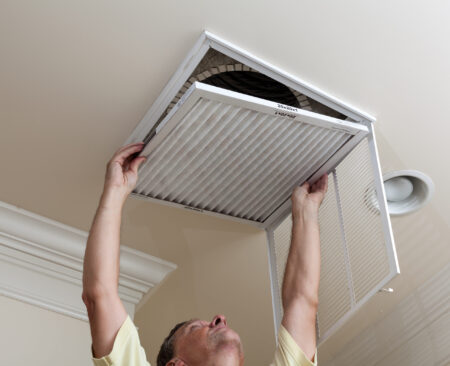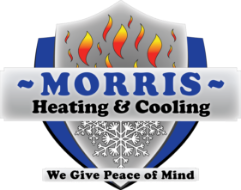How Do I Know Which Air Filter To Buy?

Choosing the right air filter for your HVAC system is crucial for maintaining indoor air quality and ensuring the efficiency of your heating and cooling system. With various options available, it can be challenging to determine which air filter is best suited for your home. At Morris Heating & Cooling, we’re here to guide you through the process and help you make an informed decision.
1. Understand MERV Ratings
The Minimum Efficiency Reporting Value (MERV) rating is a key factor in selecting an air filter. MERV ratings range from 1 to 20, with higher ratings indicating better filtration efficiency. For residential use, filters with a MERV rating between 8 and 13 are typically sufficient. These filters can capture common household allergens such as dust, pollen, and pet dander without overly restricting airflow. Filters with higher MERV ratings are often used in hospitals and industrial settings but may be too restrictive for standard home HVAC systems.
2. Consider Your Home’s Air Quality Needs
Assess your specific air quality needs before choosing an air filter. If you have pets, allergies, or respiratory issues, you may benefit from a higher MERV rating to capture smaller particles. Homes located in areas with high pollution or during wildfire season may also require more efficient filters. For general use, a MERV 8 to 11 filter is usually adequate, providing a good balance between filtration efficiency and airflow.
3. Check Your HVAC System’s Specifications
Consult your HVAC system’s manual or contact Morris Heating & Cooling to determine the recommended filter type and size. Using a filter with a MERV rating that is too high for your system can restrict airflow, leading to decreased efficiency and potential damage. Ensuring the correct size and type of filter is crucial for optimal performance.
4. Choose Between Disposable and Reusable Filters
Air filters come in both disposable and reusable options. Disposable filters are convenient and require replacement every one to three months. Reusable filters, on the other hand, can be cleaned and reused, offering long-term cost savings. However, they require regular maintenance and cleaning to remain effective.
5. Factor in Replacement Frequency
Consider how often you’re willing to replace your air filter. High-efficiency filters may need more frequent replacement, especially in homes with pets or high dust levels. Regular replacement ensures your HVAC system operates efficiently and maintains good indoor air quality.
Choosing the right air filter involves understanding MERV ratings, assessing your home’s air quality needs, and considering your HVAC system’s specifications. For personalized advice and professional assistance, contact Morris Heating & Cooling. Our experts are here to help you select the best air filter for your home, ensuring a healthy and efficient living environment.
